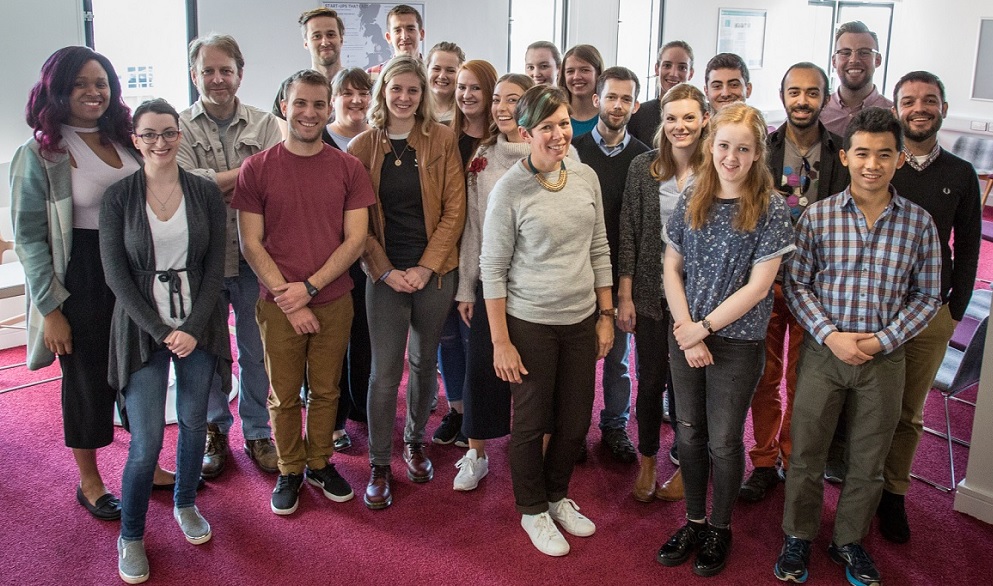Welcome! We would like to introduce ourselves as the first cohort of the CDT in Data Analytics and Society at the University of Liverpool. Susie, who is working with Local Data Company on micro-location retail topologies. Nicola is working with Red Ninja using sensor data to analyse urban mobilities. Mel is working with Ordnance Survey on extracting data from aerial imagery. Nikos is also working with Ordnance Survey on defying neighbourhood trajectories in the UK. Krasen works with Carto on applying topology to urban data. Natalie is working with Boots on incorporating weather into sales forecasting methodologies. Céline is working with ShopDirect to examine the dynamics of pricing elasticities in the online retail environment.
We are a part of the Geographic Data Science Lab, (https://www.liverpool.ac.uk/geographic-data-science/ ) here at Liverpool’s Department of Geography and Planning. The lab researches many interesting topics, combining the fields of Data Science and Geography to develop innovative applications and outputs. Particular research themes include: urban and regional dynamics, the morphology of cities, investigating new methodologies and geographies of resilience, difference, exclusion and opportunity.
Last semester, we had the opportunity to undertake an internship with our partner companies. Collaborating on a research proposal laid the foundations for a healthy, communicable relationship with our partners, which we are excited to develop over the coming years of our PhDs. Some of us had the chance to work on our projects in-person in the company’s offices; a valuable insight into the inner working environment. Overall, we achieved a clearer picture of what our partners expect from us and how our project could benefit them.
Over the Easter break, we welcomed our fellow CDT students from the Universities of Sheffield, Manchester and Leeds for a short course in Practical Data Science in Python taught by Dr Dani Arribas-Bel. The course utilised a hands-on approach to help us grasp the steps involved when using datasets to solve real-life problems. These include data structuring, manipulation, visualisation, unsupervised learning algorithms and modelling. We also had the freedom to explore our own choice of datasets, giving each of us the opportunity to apply our new skills to topics that we find interesting and which relate to our PhD projects.
Overall, it was a valuable and transferable learning experience, which we very much enjoyed spending with our fellow Data CDT cohort. We will be looking forward to seeing everyone again for the final full-cohort module at the University of Sheffield in June.
